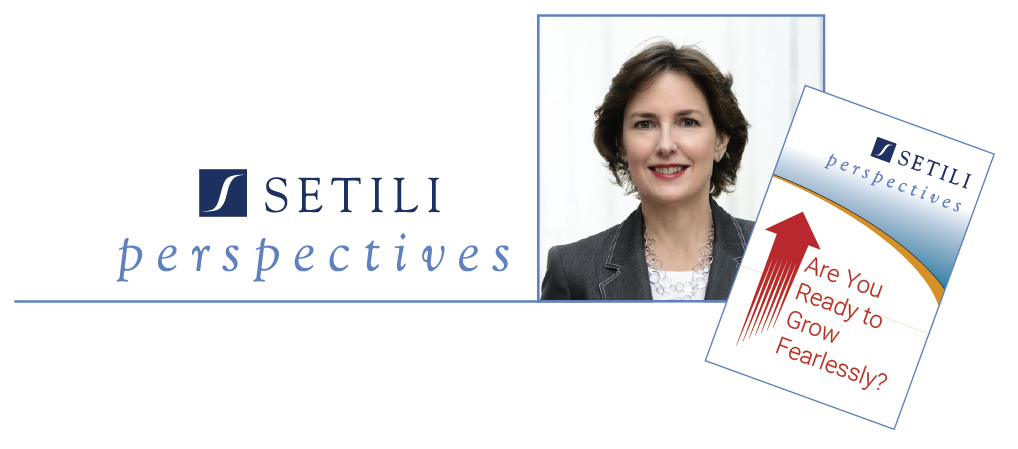AT&T Mobility and Delta Air Lines Share Insights on Being Agile in New Markets
Two Atlanta giants head expert panel at Setili & Associates’ Strategic Agility® Think Tank breakfast.
ATLANTA, Georgia (April 10, 2012) − On March 16, 2012, Atlanta strategy consulting firm Setili & Associates hosted its third Strategic Agility® Think Tank breakfast − the theme of which was how organizations can expand into new product and service markets, new geographic markets and new customer segments.
Executives from some of America’s largest brands − including Best Buy, Cisco, Coca-Cola, Equifax, Georgia-Pacific, Hilton, UPS and other leading companies − attended.
The think tank featured an expert panel with two executives who have considerable experience in emerging market segments: AT&T’s Glenn Lurie, President, Emerging Enterprises and Partnerships, and Delta Air Lines’ Jeff Arinder, Vice President, Corporate Strategy and Business Development.
Setili & Associates managing partner Amanda Setili commented, “The topic we chose for the event, ‘Winning in Emerging Markets: Innovation, Partnerships and Speed,’ is critical to the survival and success of our client organizations. Three takeaways from our expert panel were: focus on building trust with partners; stay flexible, because the world is no longer predictable; and be willing to change everything.”
Glenn Lurie negotiated AT&T’s exclusive iPhone and iPad deals with Apple. His experience illustrates these principles. From the very first meeting with Apple, Lurie’s team was on point to make the Apple-AT&T deal happen. Lurie recounted that for the iPhone to be successful, AT&T had to “change business as usual.” For AT&T, this meant giving the device manufacturer control over the user interface, establishing a brand-new activation process, and more.
“The one thing we learned is that changing BAU, or ‘business as usual,’ is really hard. My team had to drive a message throughout the organization that ‘we are going to change everything to make this a success,’” Lurie said.
“You’ve got to remain flexible, because neither partner knows what will happen down the road,” Lurie said. “When we first began talking, we had to work to establish a trusted relationship. Ultimately, AT&T and Apple achieved a partnership in which we could disagree, work through the problems, and walk out all smiles. In the end, I believe we changed the industry.”
Industry experts estimate that by 2020, 50 billion non-phone devices will be connected wirelessly. As this market grows, AT&T’s reputation as a flexible partner who can bring new devices online quickly wins the company exclusive deals with device makers. Lurie said, “In a recent deal, only seven months passed from the time we first met with the device manufacturer to the time the product hit the stores.”
At the Consumer Electronics Show (CES) three years ago, most device manufacturers were not even thinking about why they would want to connect wirelessly. This year, Lurie said, they were eager to talk with AT&T. Dozens of CE companies held meetings with AT&T at the 2012 show.
Wall Street Journal technology columnist Walt Mossberg once said Lurie had “one of the most interesting jobs in the mobile industry,” perhaps due to Lurie’s position at the center of this explosion of new technologies.
Jeff Arinder, of Delta Air Lines, agreed that flexibility is key to building trusted partnerships, and added that having the right employees is critical. Arinder hired a mix of marketing, finance and operations experts for his team, seeking “people who think differently from each other,” he said. “We look for people who are ready for anything, who don’t get flustered, and who can adapt to changing needs.”
These traits were important as Delta negotiated equity investments in Brazil’s GOL airlines and in Aeromexico. These two investments dramatically improve Delta’s competitive position in the world’s fastest-growing aviation market, Latin America.
Arinder pointed out that Brazil has only 400 aircraft in its commercial air fleet, to serve a population of 190 million people. This, along with the country’s rapidly expanding middle class, means air traffic there is poised for tremendous growth.
GOL airlines, Arinder said, was a low-cost, “point-to-point” carrier with a robust 50 percent market share in Brazil. The airline primarily serves the domestic market and sought a long-haul partner to better serve international markets. Delta and GOL made a perfect partnership.
In Mexico, flagship carrier Aeromexico’s strong position in the profitable business travel market made the carrier a highly attractive partner for Delta. Arinder cited mutual respect between the Aeromexico and Delta management teams as a key reason that Aeromexico ultimately chose to partner with Delta.
Arinder also spoke about Delta’s recent investments in technology and seat comfort, saying that the company’s smartphone app and enhancements to Delta.com enabled the company to upsell more customers to business and first-class seats. As a result, Delta is now “beating the industry on unit revenue,” or revenue per passenger mile, Arinder said.



